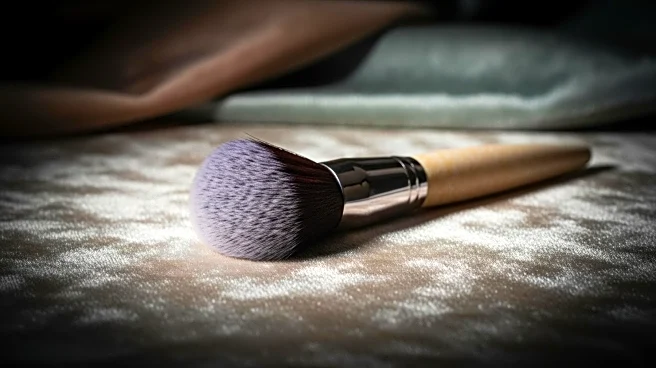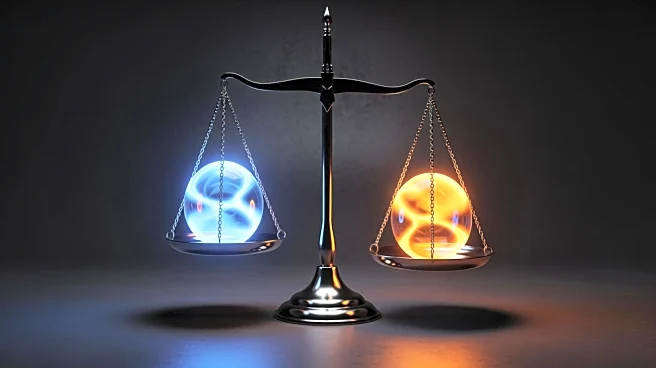What's Happening?
Michèle Burke, a renowned makeup artist known for her work on films such as 'Bram Stoker’s Dracula' and 'Interview with a Vampire,' has passed away at the age of 75. Burke, who was the first woman to win an Oscar for makeup, died on September 26 in Los Angeles. Her career spanned over 50 feature films and TV credits, including notable collaborations with Tom Cruise on several projects. Burke's work earned her two Academy Awards, the first for 'Quest for Fire' in 1983 and the second for 'Bram Stoker’s Dracula' in 1993. Born in Dublin, Burke moved to Canada in the 1970s, where she began her career in makeup artistry, eventually transitioning to the film industry.
Why It's Important?
Michèle Burke's contributions to the film industry have left a lasting impact, particularly in the field of makeup artistry. Her pioneering achievements opened doors for women in a predominantly male-dominated industry, setting a precedent for future generations of makeup artists. Burke's work not only enhanced the visual storytelling of numerous films but also elevated the recognition of makeup artistry as a critical component of filmmaking. Her collaborations with high-profile actors and directors underscore the importance of her craft in creating memorable cinematic experiences. Burke's legacy continues to inspire aspiring artists and highlights the evolving role of makeup in film production.
What's Next?
While Michèle Burke's passing marks the end of an era, her influence on the industry will likely continue through the artists she inspired and mentored. The recognition of her work, including a Lifetime Achievement Award from The Make-Up & Hairstylists Guild, ensures that her contributions will be remembered and celebrated. The film industry may see tributes and retrospectives of her work, further cementing her status as a trailblazer in makeup artistry. Future projects may draw inspiration from her techniques and innovations, perpetuating her impact on the art of makeup in cinema.
Beyond the Headlines
Michèle Burke's career highlights the intersection of art and technology in film. Her ability to transform actors into iconic characters speaks to the creative and technical skills required in makeup artistry. Burke's work also reflects broader cultural shifts, as her career began during a time when women were gaining more recognition in various professional fields. Her success story is a testament to the changing dynamics in Hollywood, where diverse talents are increasingly acknowledged and celebrated. Burke's legacy may also influence discussions on gender equality and representation in the film industry.










